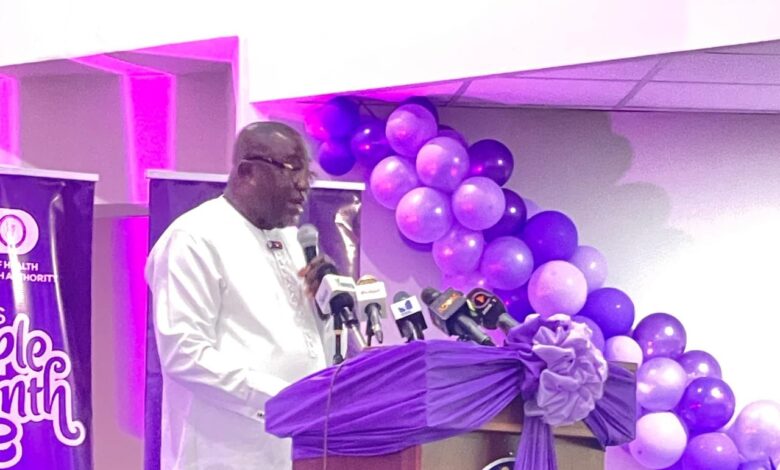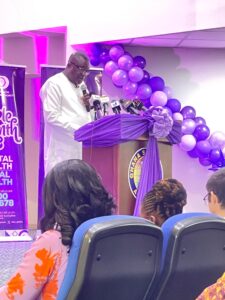
The 2025 edition of Mental Health Awareness Month, widely known as the Purple Month, was officially launched on Tuesday, April 30, with a national call to confront the growing mental health challenges facing the country.
Representing the Vice President, Prof. Jane Naana Opoku-Agyemang, Hon. Ofosu Ampofo, Policy Advisor at the Office of the Vice President led the launch event organized by the Mental Health Authority under the theme “Mental Well-being: My Voice Matters.” The initiative seeks to shift national attention toward mental health and dismantle the stigma that continues to keep many people suffering in silence.
Delivering the Vice President’s message, Mr. Ampofo described the nation’s silence around mental health as harmful and long overdue for disruption. He said mental health must be seen as a core component of public health, not a fringe issue. “For far too long, we have buried this issue beneath shame and neglect. The silence is dangerous as it erodes the potential of our workforce and undermines our national development,” he cautioned.
He stressed the urgency of encouraging open conversations and investing in accessible support systems.
Mr. Ampofo noted that mental illness knows no social class, age, or background. It can affect anyone at any time. He lamented how outdated cultural beliefs and fear of judgment continue to silence those in need. The consequences, he said, are visible: growing numbers of untreated cases, rising social instability, and a weakened sense of collective responsibility.
Figures shared by the Mental Health Authority indicate that cases of anxiety, substance use disorders, and street-related psychological breakdowns have increased by more than 20% in the past two years alone.
However, these numbers may be far from complete. Many who are suffering remain outside the system, either because services are too far away or because they are afraid to come forward. “We are dealing with an invisible crisis,” he warned.

He assured the public of government’s pledge to integrating mental health more strongly into national health planning. But he was quick to admit that the task is too large for government alone.
“We need everyone; civil society groups, professionals, traditional leaders, religious institutions, and families to be part of this movement,” he said. “Each of us has a role to play and a voice to raise.”

Mr. Ampofo ended his address with a plea to build a more compassionate society. “Let us create a culture where vulnerability is not mocked but supported. Where those battling mental illness are not pushed aside but embraced,” he urged. “Let this month be the beginning of lasting change where every voice is heard and no Ghanaian feels alone in their struggles.”



